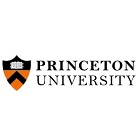- اخبار و مقالات
- Find usIDP AustraliaIDP BahrainIDP BangladeshIDP CambodiaIDP CanadaIDP ChinaIDP EgyptIDP GhanaIDP Hong KongIDP IndiaIDP IndonesiaIDP IranIDP JordanIDP KenyaIDP KoreaIDP KuwaitIDP LebanonIDP MalaysiaIDP MauritiusIDP Middle EastIDP NepalIDP New ZealandIDP NigeriaIDP OmanIDP PakistanIDP PhilippinesIDP Saudi ArabiaIDP SingaporeIDP Sri LankaIDP Taiwan, ChinaIDP ThailandIDP TurkeyIDP UAEIDP VietnamIDP Corporate
- Social
- فارسی
- Where we operate
- Courses
- Scholarships
- IELTS
- About IDP
- Student Essentials
- اخبار و مقالات
- Find us
- Find us
- Find nearest IDP offices
- IDP Australia
- IDP Bahrain
- IDP Bangladesh
- IDP Cambodia
- IDP Canada
- IDP China
- IDP Egypt
- IDP Ghana
- IDP Hong Kong
- IDP India
- IDP Indonesia
- IDP Iran
- IDP Jordan
- IDP Kenya
- IDP Korea
- IDP Kuwait
- IDP Lebanon
- IDP Malaysia
- IDP Mauritius
- IDP Middle East
- IDP Nepal
- IDP New Zealand
- IDP Nigeria
- IDP Oman
- IDP Pakistan
- IDP Philippines
- IDP Saudi Arabia
- IDP Singapore
- IDP Sri Lanka
- IDP Taiwan, China
- IDP Thailand
- IDP Turkey
- IDP UAE
- IDP Vietnam
- IDP Corporate
- Social
- LANGUAGE_SWITCHER
- آموزش IDP /
- کالج ها و دانشگاه ها /
- United States /
- Princeton University /
- Doctor of Philosophy in Art...


Location
United States
صلاحیت
Ph.D.
شهریه ها
USD62400
(2025)
مدت زمان
5 Year(s)
پذیرش بعدی
03 September 2025
امتیاز ورود
6.0
آیلتسCOURSE_INFO
- کمک هزینه تحصیلی
- دوره های کارآموزی
نیازمندی های ورود به Princeton University
Three letters of recommendation. Applicants are required to upload a transcript (may be unofficial at this time) including the key from all attended colleges or universities.
The transcript must show the name of the student, name of the issuing institution, name of courses taken, and the grades received in those courses.
The Graduate School does not have a minimum TOEFL or IELTS score requirement. If you are offered admission and accept our offer and have scored below a 27 on the Speaking sub-section of the TOEFL iBT or below an 8.0 on the Speaking sub-section of the IELTS you will be required to take an English placement test at the start of the fall term. Students who do not pass the test will be required to enroll in English Language Program classes.
GRE
General Test - optional/not required
Additional departmental requirements
Applicants are required to select a subplan when applying.
Writing sample no longer than 25 pages of text, plus illustrations up 10 MB.
Optional: Applicants may submit a statement with their application, briefly describing how their academic interests, background, or life experiences would advance Princeton's commitment to diversity within the Graduate School and to training individuals in an increasingly diverse society. Please submit a succinct statement of no more than 500 words.
ددلاین اپلیکیشن
تاریخ ددلاین مشخص نیست با یک مشاور IDP صحبت کنید برای اطلاعات بیشتر
Further information
If you aren't eligible for the above entry requirements, you might ant to explore pathway options at Princeton University. If you want to find out more, speak to our counsellors.
رتبه جهانی
4th / 1250
رتبه جهانیدانش اموزان ما چگونه فکر می کنند؟
هنوز نظری در مورد این موسسه دریافت نکرده ایم
Your action plan
گام 1
Shortlist your courses
Choose the best three courses you’re most likely to pursue.
گام 2
Check your eligibility
Get an instant in-principle offer for courses with the IDP FastLane tag.
گام 3
Apply through IDP Live
Fill out the form once and use it to apply to multiple courses.
اپلیکیشن فست لین IDP چگونه کار می کند؟
با "پذیرش مشروط" FastLane ظرف چند دقیقه می توانید در مورد پذیرفته شدن تان در دانشگاه با خبر شوید
یک موسسه یا دوره را انتخاب کنید
یک پروفایل آکادمیک ایجاد کنید
درخواست خود را برای "پیشنهاد مشروط" ارسال کنید
موسسه(ها) مورد نظر تان ظرف مدت چند دقیقه تصمیم خود را به شما اعلام خواهد کرد
برای درخواست پذیرش با کمک یک مشاور آماده شوید




